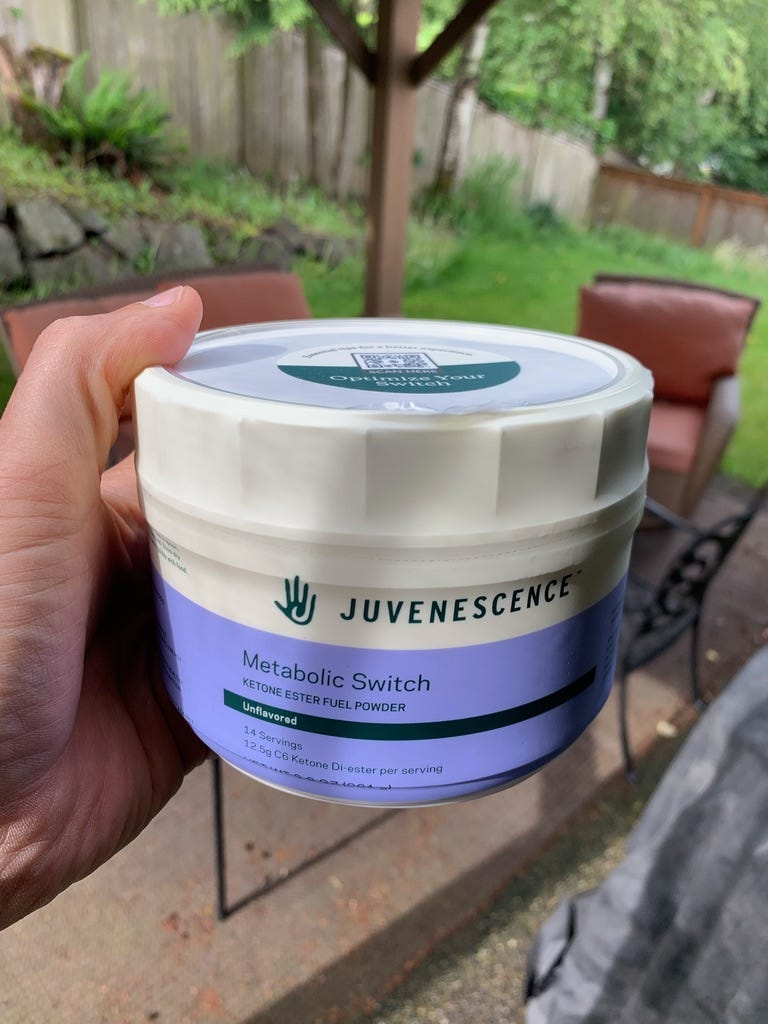Personal Science Week - 14-Jul 2022
Best genetic tests, ketone esters and more
Looking for a list of various genetic tests? Whichgenome.com is the best overview of companies that offer whole genome sequencing to consumers. If you’re looking specifically for diet-related genes, our favorite testing site Ownyourlabs.com now offers $379 in-depth tests from GBInsight
Ketosis through Ketone Esters
The body naturally slips into a metabolic state, ketosis, as an alternative energy source when glucose is not available, either through fasting or a very low carbohydrate diet. We all know people who swear by the amazing results they achieved on a ketogenic diet, with plenty of intriguing confirmatory evidence from professional scientific studies. You can achieve the blood markers of ketosis by consuming ketone esters, a class of molecules that can stimulate the body into producing ketones. Metabolic Switch™ is a powdered form of esters that clearly brought me into ketosis, as I recently reviewed for NEO.LIFE. But a lipid blood panel revealed that, at least in me, my LDL cholesterol levels seem to greatly increase while in ketosis.
I’m apparently not alone. Although scientists behind the product claim there was no change in lipid levels in a randomized study of 60 overweight people. As a personal scientist it’s difficult for me to hold an opinion one way or another on a study I didn’t perform for myself, but there’s no disputing the evidence of my own tests. Granted, test was hardly a serious one: a single blood test after a week of trying the product, but I may not be alone. The website Cholesterol Code documents an amateur effort to learn if there may be a class of people like me — referred to as “Lean Mass Hyper Responders” (LMHR) whose blood cholesterol levels, like mine, shoot up in the presence of ketones. Because so many keto diet adherents see obvious benefits to weight control and more, it’s natural to wonder if LDL-C may not be the universal danger signal that many cardiologists claim.
Also note: a team including Quantified Self co-founder Gary Wolf published a peer-reviewed study of self-trackers whose data show clearly that cholesterol levels change wildly throughout the day — enough to question all of these fasting first-thing-in-the-morning studies in the first place.
About Personal Science
How do you know for sure? In a complex world with competing and often contradictory information, Personal Scientists believe that everyone can apply the techniques of science to edge closer to the truth. It’s not easy. Even if you want to simply “trust the experts”, you must choose which experts to trust.
This newsletter is a short, weekly documentary on how to be a personal scientist.

